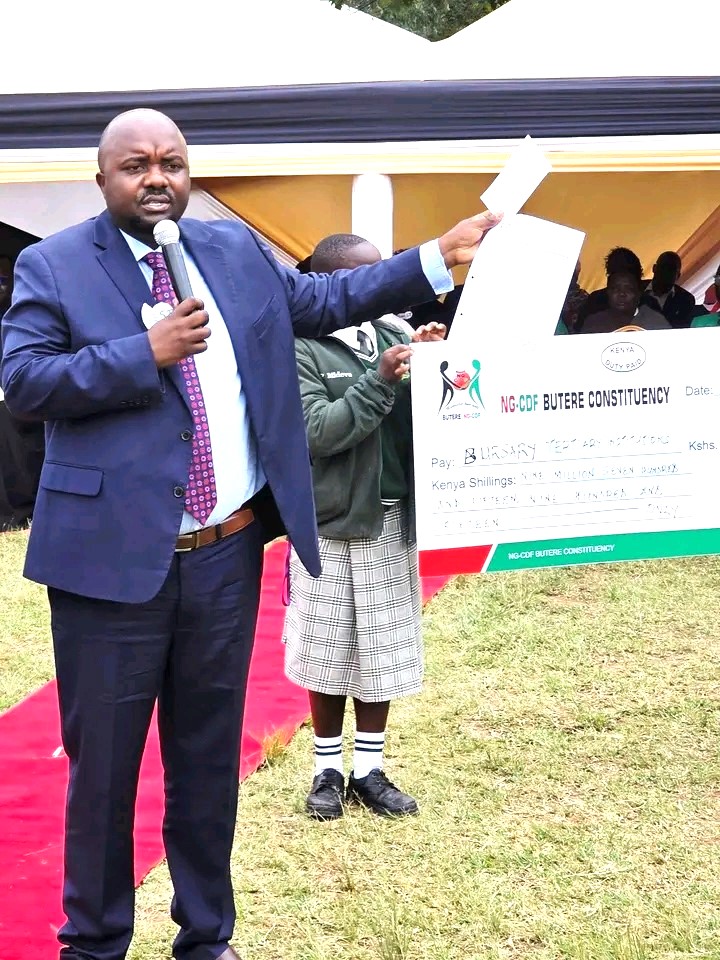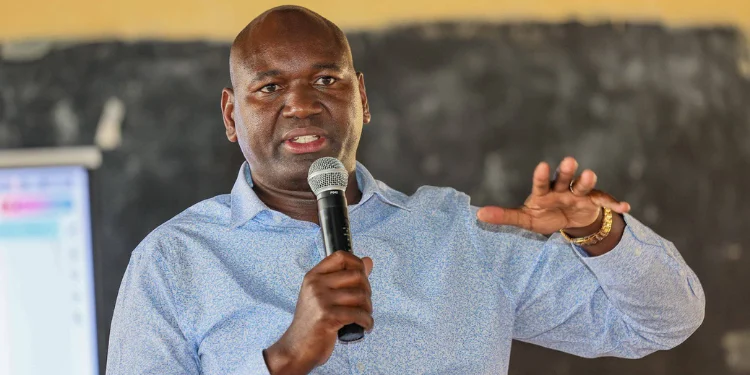Teachers across the world, and especially in rural Kenya, embody a resilience that often goes unnoticed. For many of them, the journey to school is not a simple commute but a daily battle against nature itself. While others begin their mornings with predictable routines, these teachers brace themselves for floods, searing heat, biting cold, or choking dust—determined to stand before their students no matter the obstacles.
When heavy rains fall, swollen rivers and muddy, impassable roads stand in their way. Some wade through knee-deep water, balancing bags of books on their heads to keep them dry. Others cling to makeshift rafts to cross raging streams where bridges have long been swept away. Those fortunate enough to own motorbikes or bicycles often find them useless in the wet season; wheels sink helplessly into sticky mud, forcing teachers to push their vehicles for kilometers. Yet despite soaked clothes, bruised legs, and hours lost along the way, they still arrive to greet the eager children waiting in their classrooms.
In the arid and semi-arid regions, the challenge is the opposite. Here, the sun is merciless, with temperatures climbing above 40 degrees Celsius. Teachers trudge long distances beneath the burning sky, carrying bottles of water that never seem enough. Dust clings to their clothes, scorches their throats, and blinds their eyes, but they press forward, driven not by pay—which is often delayed or inadequate—but by a conviction that education is the only path out of poverty for the children they serve.
For those in highland regions, cold and fog are the daily adversaries. At dawn, when frost whitens the ground and the air bites, teachers set off wrapped in heavy coats or blankets. Their breath clouds the morning mist, and sudden downpours or even hailstones often pelt them along the way. Still, they push forward, warmed by the thought of young faces waiting in classrooms, eager to learn.
ALSO READ:
Man arrested for cohabiting with 17-year-old school girl in Bomet
In semi-desert landscapes, strong winds whip across barren plains, lifting dust so thick that it becomes impossible to see more than a few meters ahead. Teachers shield their faces with scarves, their eyes reddened and watering, while forcing themselves through invisible walls of air. In certain parts of the country, particularly near wildlife corridors, danger comes in other forms. There are stories of teachers encountering elephants blocking narrow paths or snakes slithering across the road. Many walk in groups, not just for companionship, but also for safety.
Poor infrastructure makes all this even harder. Roads are little more than rough tracks, turning into muddy swamps in the rains and bone-dry, cracked paths in the heat. Public transport is rare, unreliable, and often too costly. Teachers rely mostly on their feet, walking more than ten kilometers a day. What sustains them is more than duty—it is a deep conviction that their sacrifice opens doors for children whose dreams are otherwise limited by geography and poverty.
Even as all this unfolds in the villages and remote landscapes, union leaders are preparing to meet President William Ruto at State House. Representing them will be the Kenya National Union of Teachers (KNUT), the Kenya Union of Post Primary Education Teachers (KUPPET), the Kenya Women Teachers Association (KEWOTA), and the Kenya Union of Special Needs Education Teachers (KUSNET). They will walk into that meeting carrying the voices of these same teachers, many of whom still arrive at class soaked, dust-stained, or weary from long treks. On the table will be grievances as heavy as the burdens these educators shoulder.
KNUT, which represents primary school teachers, will push hard for clarity on the leadership of junior secondary schools and demand better support for head teachers who are overwhelmed by the added responsibilities of managing new grades without resources.
ALSO READ:
Rising carnage sparks call for speed bumps on Narok–Maai Mahiu Highway
KUPPET, which speaks for post-primary teachers, will focus on workload, understaffing, and the urgent need for more investment in laboratories and classrooms to prepare for the 2026 transition to senior school. They will also raise issues of unfair transfers and salary structures that continue to demoralize secondary school teachers.
KEWOTA, representing women teachers, will bring a unique perspective to the table. They will speak about gender-based challenges in the profession—from maternity leave rights and workplace safety to the double burden of balancing teaching with family responsibilities. They will call for stronger mental health support and protections against harassment in both rural postings and urban schools.
KUSNET, the voice of special needs teachers, will remind the President that inclusive education cannot be achieved without proper facilities, trained staff, and specialized teaching materials. They will argue that children with disabilities deserve not just a place in school, but the quality education that only well-supported teachers can deliver.
Together, these unions will also highlight cross-cutting concerns: the delayed release of capitation funds, the cracks in the Competency-Based Curriculum, unauthorized salary deductions, and the sheer exhaustion that comes from walking miles every day to overcrowded classrooms with little recognition or support.
ALSO READ:
Shock as Eldoret Poly student dies after alleged failed abortion
Even as union officials sit before the Head of State in polished suits, their minds will not be far from the men and women who, that very morning, trudged through floods, battled dust storms, or walked for miles on empty stomachs to reach their pupils. The contrast could not be sharper: the grand rooms of State House on one hand, and the muddy footpaths of rural Kenya on the other.
Teaching in such environments is not simply a profession—it is a calling. To brave such extremes, only to stand before a classroom with a smile, speaks of a dedication that few careers demand. The resilience of these teachers is, in itself, a lesson for their pupils: that perseverance can overcome even the harshest of conditions, and that knowledge is worth every step of the struggle to reach it.
All teachers are anxiously waiting for the outcome of the meeting between His Excellency, President William Ruto, and their unions—KNUT, KUPPET, KEWOTA, and KUSNET—with a lot of hope that their struggles will finally be addressed.
By Hillary Muhalya
You can also follow our social media pages on Twitter: Education News KE and Facebook: Education News Newspaper for timely updates.
>>> Click here to stay up-to-date with trending regional stories
>>> Click here to read more informed opinions on the country’s education landscape






